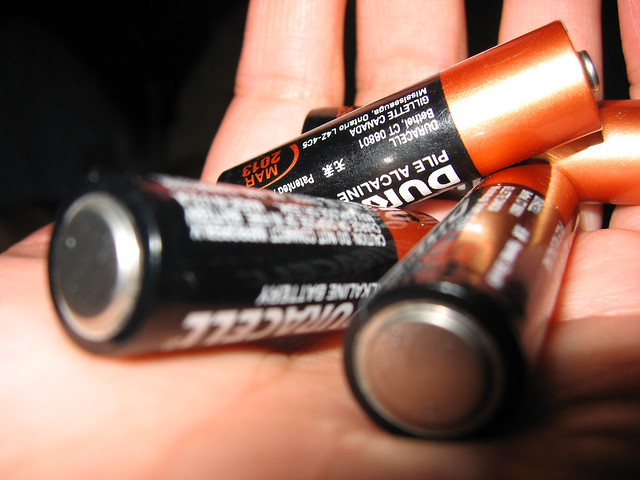Car Lithium Ion Battery Price, Meaning, and Market
Nov 27, 2019 Pageview:1521
Lithium-ion batteries are the most common form of rechargeable batteries that are used in electric cars. Due to their high energy density in comparison to their weight, they are the number one choice for electric car manufacturers.
What is car lithium-ion battery usual price?
Since 2010, Lithium-ion batteries for car prices have declined tremendously. The price drop was estimated to be 73% in 2016 reaching a new level of $273/kWh. This is due to the advancements and improvements the industry has encountered in these few years. Now in 2019, the price took another dive down to be $230/kWh. Another factor that helps with the price drop is the fierce competition between major manufacturers.
Another factor that brings down prices, even more, is that despite overcapacity, Lithium-ion car batteries' plants continue to get built. As of today, the total production capacity of plants is estimated to be 154 GWh worldwide. It is projected to increase to 273 GWh by the year 2021. This ultimately is driving battery companies to reduce battery prices so that they can sell more batteries and increase their utilization. Some forecasts are predicting that electric cars batteries prices will hit another 30 to 35% dive in the next five years.
A behind the scenes take on car lithium ion battery price
According to Bloomberg New Energy Finance forecasts, Lithium-ion battery pack prices will dive to be as little as $73/kWh by the year 2030. According to their study, a battery produced in a Korean manufacturing plant in 2019 costs $162/kWh that will drop to only $73/kWh in 2030. The Bloomberg New Energy Finance (BNEF) battery price survey shows an annual industry average battery prices for electronic vehicles. The learning rate, which is the price for every doubling of capacity, decreases by 19% for every doubling of capacity.
In December 2018, Bloomberg New Energy Finance (BNEF) published the results of its ninth battery price survey. In this survey data was collected from very early periods, as early as 2010. It is shown in it that the volume-weighted average battery pack fell by 85% in a span of only eight years, from 2010 to 2018, reaching a new low average of $176/kWh. According to the market, the $176/kWh price is considered a bit high, and the real price on the market is way lower than that. If you look at the prices provided by the Tesla company, you would find that it fits well within the BNEF's average. That is due to the fact that Tesla is the world's largest electric vehicle company, and it has the largest market share. However, if you look at some other companies you would be surprised by how low their pack prices are. Not like Tesla though, these other companies have less impact on the average due to their low production volumes.
There is another argument on the market though, that says battery prices will increase not fall. This argument is based on the fact that metal prices are rising throughout the world, and they are also based on the fact that battery companies want to increase their profit margins too. Let us talk about metal prices. Lithium-ion electric vehicles batteries are dependent on Lithium, Nickel, Cobalt, and Aluminum. Any change in the price of only one of those metals is enough to make an impact on the battery pack price. For example, a 50% increase in the price of Lithium would instantly increase the battery pack price of nickel-manganese-cobalt by around 4%. Similarly, doubling the Cobalt price will instantly increase the overall battery pack price by 3%.
The other thing supporting this argument is that; due to the lack of transparency in profit margins. Manufacturers may increase prices to increase these margins. There are some rumors on the market that companies like Samsung SDI and LG Chem, are in talks with a number of their customers to reach a new agreement to increase battery price contracts by approximately 10% in their next supply agreements. Some say that these companies try to defend a price premium that might not be defensible.
Car lithium ion battery costs & market
Electric vehicle market is set to expand. Leading battery manufacturers like Panasonic are increasing their productivity dominating the market and setting the average price. High-class manufacturers like Samsung and Panasonic will succeed in driving prices low or at least keeping them at a constant average value, while others will lag in that field.
The high battery price margins that before had lead to some great missed opportunities in the electric vehicle market. That is why all manufacturers want to drive prices low to be able to sell more units. According to some research, if prices are low enough -even if they have little profit margin- it will provide a substantial profit. Due to the fact that millions and millions of packs would be sold at that low price.
There are some obstacles that face small and new manufacturers. The partnership between Panasonic and Tesla, and then the new Tesla battery factory. All of that made the completive gap wide. Resulting in a huge difference between small companies and companies like Panasonic or Samsung. Not only small companies that suffer. But big companies like Nissan, suffers from a decreased market share in the field of car batteries, unlike China's BYD company that provides Panasonic with some of its battery packs.
- Prev Article: Puffed LiPo Battery Disposal Analysis
- Next Article: Charging Lithium Car Batteries Charger, Tips and Fast Charge
Leave Message
Hottest Categories
-
Hottest Industry News
-
Latest Industry News











